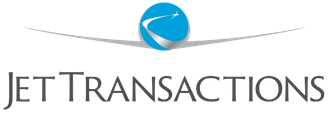By Spencer Bloomer
Sales Associate at JetTransactions, an industry leading Private Aviation Sales and Acquisitions Group
For businesses that need to travel frequently or transport goods quickly, owning a private aircraft can be an attractive option. However, the cost of purchasing and maintaining a private aircraft can be substantial, which is why businesses should be aware of the tax benefits of bonus depreciation. Under the Tax Cuts and Jobs Act of 2017, businesses can claim bonus depreciation for eligible assets, including private aircraft, and immediately deduct a percentage of their cost in the year they are placed into service, effectively reducing the amount of taxable income to the business. This tax benefit can provide significant savings for business owners and make private aircraft purchases more accessible.
Bonus depreciation has a long history, dating back to the Economic Stimulus Act of 2008, which introduced a temporary bonus depreciation provision to help stimulate the economy during the Great Recession. Initially, the provision allowed businesses to immediately deduct 50% of the cost of new eligible assets placed into service in 2008. Since then, bonus depreciation has been extended and modified several times. In 2017, the Tax Cuts and Jobs Act expanded bonus depreciation to include both new and pre-owned aircraft and allowed for businesses to deduct 100% of the cost of eligible assets placed into service between September 27, 2017, and before January 1, 2023. Starting in 2023, the bonus depreciation percentage will begin to phase out, decreasing by 20% each year until it reaches 0% in 2027. At the time of writing, bonus depreciation is 80% during the year 2023.
For businesses that own or are considering purchasing a private aircraft, bonus depreciation can provide substantial tax benefits. The deduction applies to the purchase price of the aircraft, as well as any upgrades or capital improvements made to the aircraft after it is placed into service. Additionally, the deduction can be used for both new and used aircraft, as long as the aircraft is new to the business and meets other eligibility requirements.
To be eligible for bonus depreciation, the aircraft must be used for business purposes, otherwise the business risks a reduction in the percentage of the deduction that can be claimed. Additionally, businesses must be the legal owners of the aircraft and use it in their trade or business – meaning that individuals who own a private aircraft and use it solely for personal purposes only are not eligible for bonus depreciation.
Let’s consider an example to illustrate the potential tax savings of bonus depreciation. Suppose a business purchases a Gulfstream G280 private aircraft for $19 million in 2023. Assuming the business meets the eligibility requirements for bonus depreciation, they can immediately deduct 80% of the cost of the aircraft, or $15.2 million, in the year it is placed into service. This deduction can reduce the taxable income of the business by $15.2 million in the first year and provide substantial tax savings for the business owner. In most cases, the remaining 20% depreciation can be taken over the next 4 years.
In conclusion, bonus depreciation is a valuable tax benefit that can provide significant savings for businesses that own or are considering purchasing a private aircraft. However, eligibility requirements must be met, and businesses must ensure that the aircraft is used for business purposes. Additionally, it’s important to consult with a tax advisor to fully understand the implications of bonus depreciation in a tax scenario.
Disclaimer: This article is for informational purposes only and does not constitute tax advice. It is important to consult a qualified tax professional to discuss individual requirements and eligibility.

